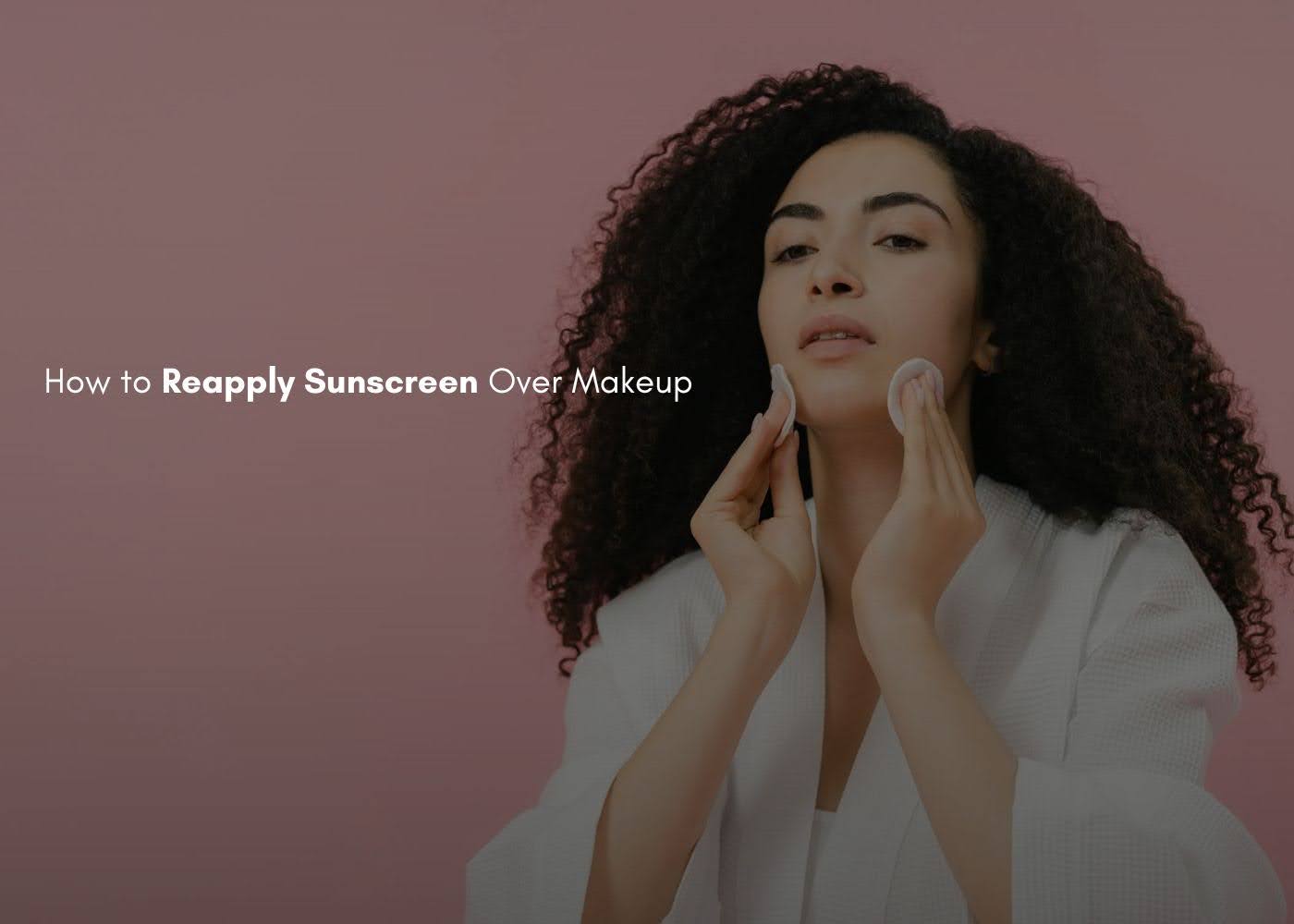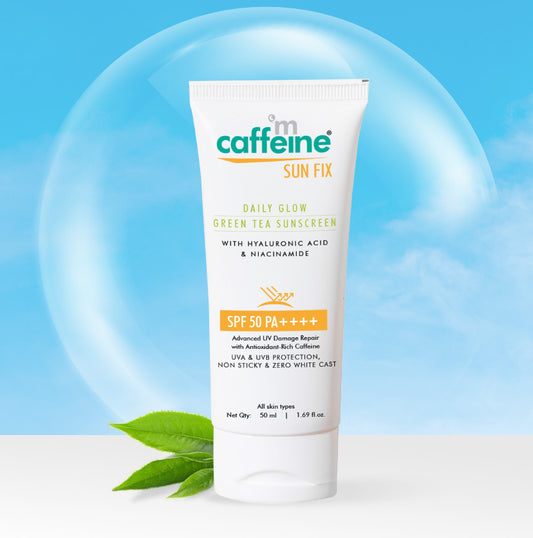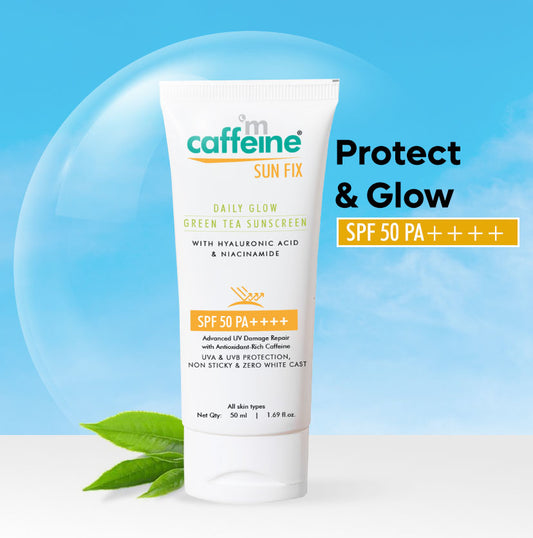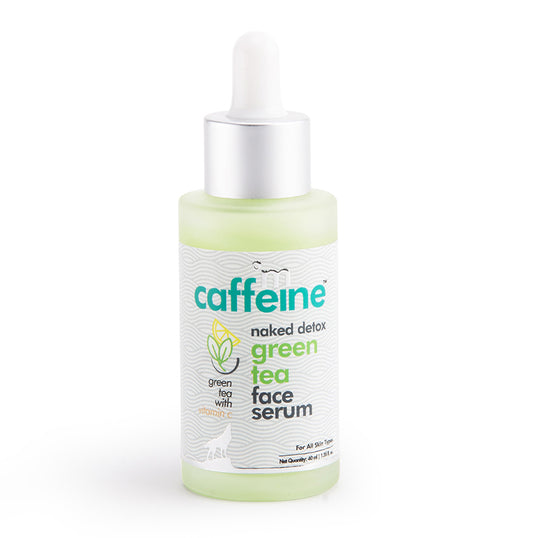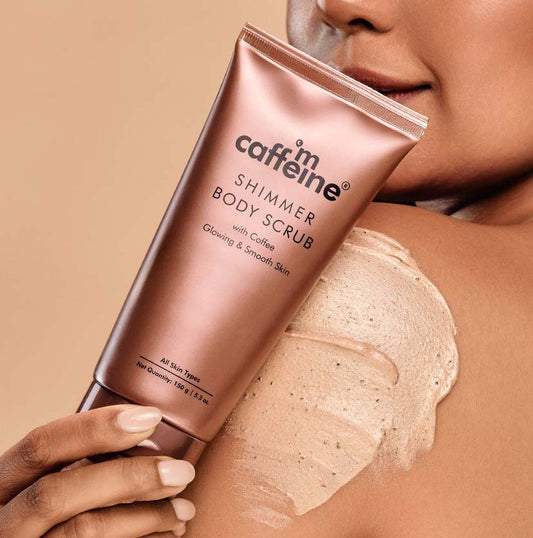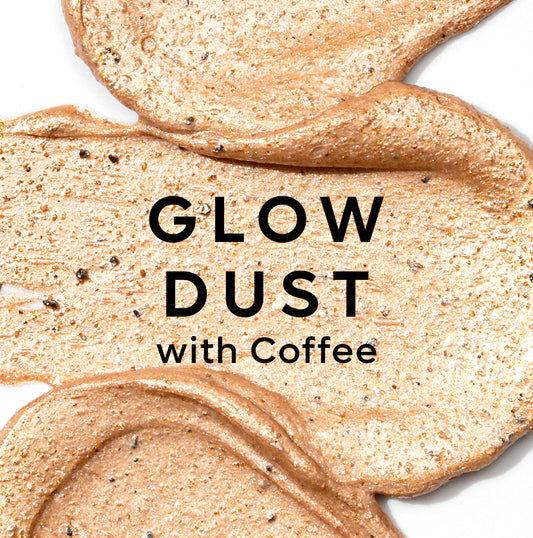Face Masks Vs. Face Packs: Which is Right for You?
25 Apr 2025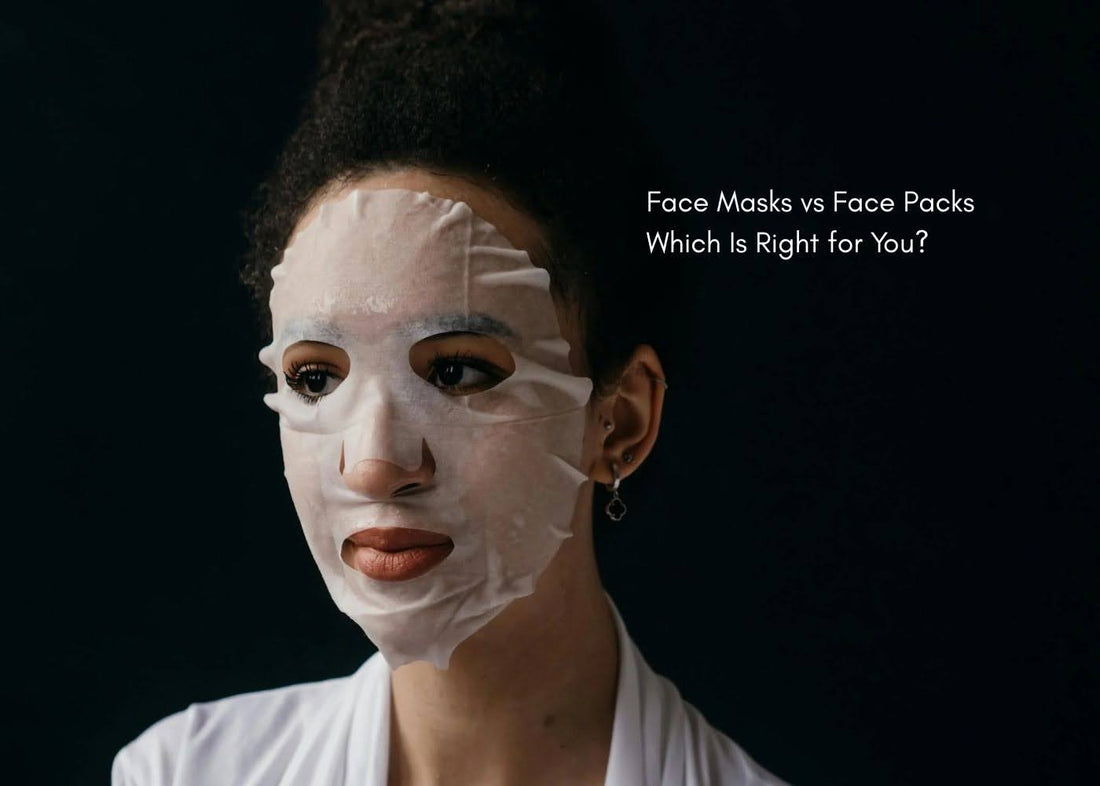
In the vast world of skincare, choosing the right product can sometimes feel overwhelming. Particularly when it comes to selecting between a face mask and a face pack—terms that are often used interchangeably, yet carry distinct differences. In this comprehensive guide, we will walk you through the nuances of face masks versus face packs.
What is a Face Mask?
Face masks have rapidly evolved into a skincare staple for modern women. Often available in various forms such as sheet masks, peel-off masks, clay formulations, and gel-based masks, these products are designed to deliver a concentrated boost of hydration and brightening agents right where your skin needs them most.
Here’s what sets face masks apart:
-
Modern Formulations: Typically, face masks are created with scientifically advanced ingredients like hyaluronic acid, peptides, vitamin C, and, yes—caffeine. This is especially relevant for mCaffeine’s range, where the energizing benefits of caffeine are combined with other potent actives.
-
Targeted Treatments: Whether you’re managing excess oil, dullness, or fine lines, face masks are formulated with targeted results in mind. The formulations are often lightweight yet potent enough to work deep into the layers of your skin.
-
Convenience and Variety: With options ranging from ready-to-use sheet masks to innovative cream or gel-based masks, integrating them into your skincare routine has never been easier.
-
Quick Fix for Immediate Results: While not a replacement for your daily skincare regimen, face masks are perfect for those days when you need a quick pick-me-up. A 10-20 minute mask session can leave your skin feeling refreshed, hydrated, and prepared for makeup application.
What is a Face Pack?
Now, shifting the conversation to face packs—a term that might sound similar yet carries its own identity within the realm of skincare.
Here’s a closer look:
-
Traditional and Natural Roots: The term “face pack” conjures up images of natural ingredients—think besan (chickpea flour), turmeric, and sandalwood—mixed to form a thick paste that is applied to the face. These ingredients not only nourish the skin but also help in reducing excess oil and impurities.
-
Deep Nourishment: Unlike the quick fix of a face mask, face packs are typically designed for deeper nourishment. They work by drawing out impurities, exfoliating dead skin cells, and providing essential minerals that help maintain the health of your skin.
-
Customizable and Versatile: With a face pack, you have the freedom to experiment. You can create your own blend at home tailored to your specific skincare needs or choose from a variety of commercial products that incorporate natural ingredients with added benefits such as antioxidants and essential oils.
-
Application: The process of applying a face pack is as therapeutic as the treatment itself. The ritual of mixing, applying, and then gently massaging it into your skin can have calming and almost meditative effects.
Face Mask vs Face Pack: Key Differences
Understanding the face mask vs face pack debate comes down to the formulation, application, and the desired results.
|
Face Mask |
Face Pack |
|
Often a gel, cream, or sheet infused with actives |
Typically a thicker, paste-like consistency, often with natural ingredients |
|
Advanced compounds (e.g., hyaluronic acid, peptides, caffeine) |
Traditionally natural ingredients (herbs, clays, flours) |
|
Hydration, brightening, anti-aging, and quick infusion of active ingredients |
Deep cleansing, nourishment, and detoxification |
|
Short-term usage—usually 10–20 minutes per session |
Can vary from 10 minutes to longer sessions for deep nourishment |
|
Often used as an occasional boost (1–2 times a week) |
May be used more frequently, sometimes even daily, depending on skin type and formulation |
Key Takeaways:
-
Immediate vs. Deep Nourishment: Face masks are perfect when you crave immediate results—a radiant glow that makes your makeup look more flawless. In contrast, face packs are more about long-term skin health, offering deep nourishment and detoxification.
-
Modern vs. Traditional: While face masks often incorporate modern, scientifically-backed ingredients, face packs are the age-old remedies that harness the power of nature.
-
Customizable vs. Ready-Made: Many women swear by easily customizable face packs for their organic benefits, whereas face masks provide convenience and consistency with every application.
Ingredients and Formulations
The real magic behind both face masks and face packs lies in their ingredients. Let’s unpack how these formulations cater to different skin needs:
-
Modern Actives in Face Masks:
Face masks by brands often feature cutting-edge ingredients. Caffeine, for instance, isn’t just a morning pick-me-up in your cup of joe; it’s a powerful antioxidant that helps reduce puffiness, improve blood circulation, and even minimize fine lines.
Combined with brighteners like vitamin C or hydrating agents such as hyaluronic acid, these masks ensure your skin is primed for a flawless makeup finish.
-
Natural Richness in Face Packs:
On the flip side, face packs often channel the wisdom of natural skincare. Ingredients like turmeric, neem, bananas, and chickpea flour have been used for centuries to revitalize the skin.
These natural compounds provide a deep cleanse by drawing out impurities, reducing oiliness, and leaving behind a refreshed canvas ideal for subsequent makeup application. A face pack can be particularly beneficial if your skin is prone to breakouts or if you prefer treatments that are gentle and naturally sourced.
How to Apply: Techniques & Tips
Even the best product will fall short without the right application technique. Here, we break down how to effectively use face masks and face packs, ensuring you maximize every drop of goodness:
-
Preparation is Key: Start with a clean face. Use a gentle cleanser to remove makeup, oil, and impurities. For best results, consider steaming your face for 2-3 minutes to open up pores.
-
Applying a Face Mask: Use a brush or your fingertips to spread the mask evenly over your face, avoiding the sensitive eye area. Adhere to the recommended 10–20-minute duration. Overuse can sometimes lead to dryness.Gently rinse off with lukewarm water and follow up with a hydrating toner or serum.
-
Using a Face Pack: For traditional face packs, gently massage onto the skin, allowing the natural ingredients to work their magic. Depending on the product, rinse with water or use a damp cloth to remove any residue. Follow up with your moisturizer.
-
Post-Treatment Care: Always follow up with a moisturizer or serum to lock in the benefits. If you apply these treatments during the day, don’t forget your SPF, as your skin might be more sensitive.
Whether you’re adding a face mask to your weekly routine or indulging in a rejuvenating face pack session, the secret lies in consistency.
Choosing the Right Treatment for Your Skin
-
Assess Your Skin Type:
-
Oily or Acne-Prone Skin: A face pack with natural, detoxifying ingredients (such as clay or neem) may help control sebum production and cleanse pores.
-
Dry or Aging Skin: A hydrating face mask enriched with ingredients like hyaluronic acid and caffeine can restore moisture and improve elasticity.
-
Combination Skin: Consider alternating between a nourishing face mask and a balancing face pack to target different areas of your face.
2. Identify Your Primary Concern: you’re looking for an immediate glow that enhances your makeup application or gives your lips a smoother base, opt for a face mask. For long-term skin improvement and a more wholesome treatment, a face pack might be your best bet.
Conclusion
In the debate of face mask vs face pack, there’s no one-size-fits-all answer—your choice ultimately depends on your skin type, your specific concerns, and your lifestyle. Whether you opt for the quick, refreshing boost of a face mask or the deep, nourishing ritual of a face pack, remember that every step you take in caring for your skin is an investment in your overall beauty. For women looking to achieve that flawless base for both makeup and luscious lips, understanding the difference between face pack and face mask empowers you to make the right decision for your unique needs.
At mCaffeine, we’re here to support your journey to radiant, healthy skin. Explore our curated range of innovative, caffeine-powered products that not only enhance your natural beauty but also offer the luxurious, eco-friendly experience you deserve.
FAQs
What is the difference between a face mask and a face pack?
A face mask is typically a quick-fix treatment available in various forms such as sheet masks, peel-off masks, or gel masks loaded with advanced active ingredients like hyaluronic acid, peptides, or caffeine. In contrast, a face pack generally has a thicker, paste-like consistency and is often formulated with natural, traditional ingredients (like chickpea flour, turmeric, or clay) aimed at deep cleansing and nourishment.
Which product is better for oily or combination skin?
For oily or combination skin, a face pack with detoxifying and oil-absorbing ingredients (such as clay or neem) may help control sebum and unclog pores. However, a lightweight face mask enriched with caffeine can also provide a refreshing boost, balancing hydration while minimizing excess oil, making it safe for everyday use.
How often should I use a face mask or a face pack?
Ideally, face masks are used 1-2 times per week for an instant hydration or brightening boost, whereas face packs can be used more frequently depending on your skin type. For instance, those with oily or acne-prone skin might benefit from using a face pack 2-3 times a week for deep cleansing, while others might choose to alternate between the two for balanced skin care.
Can I combine the use of face masks and face packs in my skincare routine?
Absolutely! Many skincare enthusiasts alternate between face masks and face packs to address different skin needs. You might use a face mask for a quick hydration boost and improved skin texture before makeup application on busy days, and a face pack on a relaxing weekend ritual to deeply cleanse and nourish your skin.
How do mCaffeine products stand out when it comes to face masks and face packs?
mCaffeine products are unique as they blend the best of both worlds—modern scientific formulations infused with caffeine and natural extracts—to offer both immediate radiance and long-term skin health benefits.


